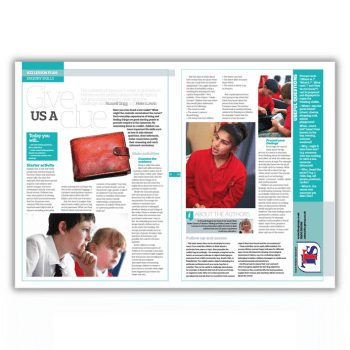The contents of a person’s wallet is all Sherlock Holmes would need to deduce their life history. Are your pupils’ enquiry skills up to the challenge?
Have you ever found a lost wallet? What might the contents reveal about the owner? Such everyday experiences of losing and finding things are good starting points to promote enquiry in the classroom.
By examining items in a wallet, children can learn important life skills such as how to ask relevant questions, draw inferences, make connections, justify their reasoning and reach informed conclusions.
Learning objectives
- ask searching questions like a detective
- make reasonable guesses based on evidence
- summarise clearly your findings
Starter activity
Explain that, in the real world, people lose and find things all the time. Share ‘lost and found’ stories with the class. For example, each day items are lost at gyms, train stations and airport lounges, and newspapers used to regularly include a lost and found section.
Children may have seen posters of missing pets in their local environment. And the American news channel, CNN, reported weird objects left at airports, including a live rattlesnake roaming free amongst the rest of the unclaimed baggage, a complete naval guidance system, a Barbie doll stuffed with 500 dollars, and a full suit of armour!
Ask the class to imagine they have found a wallet, purse or bag on the pavement. What can they find out about a person from the contents of the wallet? Can they work out basic details, such as the person’s age, gender or place
of residence?
Can they probe further to establish information about the owner’s family relationships, employment, interests, or beliefs? What kind of a personal profile can they build up?














